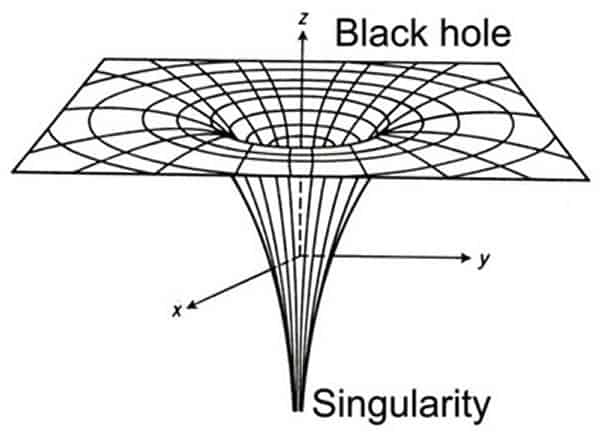A good article is one which the reader finds informative. If the subject of your article is about the pros and cons of a product, the reader should be able to relate to what you have written about. If your article is about a problem, you need to communicate the solution to the reader. With these things in mind, article writing is actually easier than most of us think.
Here are 5 important tips for writing great articles:1. The title of your article should be simple and not ambiguous for it to be most effective. Before writing your article, you should determine your target audience. This will help you write to the correct reader. Your article title should be both informative and interesting. Because you will be competing with hundreds or thousands of other articles, you want your title to stand apart from the crowd.2. Strategically placed keywords. Your success or failure of an article marketing campaign rests in the proper use of keywords. Your main keywords should appear once in the title as well as the opening and closing paragraphs. The keywords should also appear in the middle of the article but it is not as critical as the other three locations. Sprinkle the keywords throughout the rest of the article but do not overdo it. A keyword density of 1-3% should be your goal.3. Use a conversational tone. You want to make it seem like you are talking directly with the reader. Do not write in the style of a novel or encyclopedia. Use first person pronouns when addressing the reader. Ask some questions and find other ways to engage the reader in order to make them think.4. Keep your article short and easily scannable. Most online users are generally pressed for time. Make your article relatively short and easy to skim through and they will be more attractive to those types of people. 400 to 600 words is a good length for a quality article. Use more and many readers will think it will take more time to read than they have. Make the article too short and may readers will think your information would not be valuable enough for them. Use subheading, short paragraphs, and bulleted or numbered lists. Having enough white space is easy on the eyes.5. Practice good grammar and correct spelling. This should be a no-brainer but so many article writers simply have a poor grasp on grammar and spelling. Always reread your article, run through a spell check, and if possible, have another person read it for you. You'd be surprised how many errors can be avoided by following these guidelines.Final ThoughtsThe basic key to writing good quality articles is to target a specific group of people looking for more information on a chosen topic, hook them with a quality title, and deliver the information in your article that they have been looking for..articlesbase.com/
Each of us works at writing on two levels:a creative, unconscious level and acritical, conscious level.
The unconscious produces creative and powerful words and images. It makes surprising and original connections. It shuts down if the critical "editor" part of your mind goes to work too soon.If your High School English teacher's voice runs through your mind as you write, if you worry about spelling, grammar, or how to sell your book while you write, you are writing with a dull pencil.There are many books written on how to unlock your unconscious and let the writing flow. Here are just a few ideas- Brainstorm words or images about your topic. Don't stop to evaluate their worth. Keep writing down ideas. When you can't think of another word, wait a while. Often the most powerful idea will surface after you have cleared all the less valuable ideas out of the way.
- Write a page or two with your eyes shut. It doesn't matter if you can't read what you've written. You are giving your mind permission to make "mistakes" and just get on with it.
- Write with music in the background. Experiment to find the style that you like. I prefer baroque or classical music. One of my writing teachers needed country and western.
- Give yourself permission to be emotional. If your writing begins to move you, experience the full emotion. Before your writing changes others it will change you.
only when you have drawn deeply from the well of your unconscious. Spelling counts. So does good grammar. They support vibrant writing. They do not create vibrant writing. There are a great many correctly written lifeless sentences. The best writing comes to life, and then is refined just enough to make it crystal clear.First, give it life.Writing Tip #2: Write what you know
Given the chance, what do you talk about endlessly? What drives you to seek out information? What are your passions? When you write what you know, you write with authority. People listen to you because you are one who knows. You areinteresting because you are interested. Your knowledge is a gift to share.
Writing Tip #3: Research
Deepen the well. No matter what you know about the subject, there is always more to learn. Make sure you have the latest information available on your subject.
If there are differences of opinion in the area you are writing about, acknowledge the other side. Your statements will come across more strongly if the reader knows you have addressed the arguments others would raise.Once you write something, at least some of your readers are going to believe you. You owe them accuracy."Yes, but...I'm writing my autobiography."
Or, "This is my family history. I know this story like no one else."That's true, but others have a perspective not like yours. Memories, even yours, can be faulty."Yes, but...I'm writing fiction."O.K. The details of fiction need to be as accurate as the details of nonfiction. Margaret Atwood won The Booker Prize for her novel The Blind Assassin. Her work is powerful on many levels. She took no chances with the details. At the back of her book is a list of acknowledgements 2 1/2 pages long: libraries, archives, museums..."Yes, but... My story is a fantasy."Even when you invent a universe, you invent it to be understood by earthlings. If you are going to have impossible things happening, you need to offer some explanation that will make sense.Writing Tip #4: Use a structure
For some writers, having a structure in place first makes the writing easier. These writers prefer to think things out ahead of time and then build to a plan.
Other writers put down all their ideas in a glorious profusion of words. Papers may be spread all over the house, the car, the office desk, in fishing tackle boxes.... These writers like to see all the material and then build the structure.Both approaches work well depending on the personality of the writer. Both kinds of writers need to end up with a structure that supports the reader's understanding.There is no one right structure for a book any more than there is one right structure for a house. Some will be linear, and take the reader step by step directly through to a conclusion like a long hallway opening into an inner courtyard. Others will feature a spiraling staircase that takes the reader around and around the topic, always climbing higher to the secret chamber at the top, or to the rooftop view where everything becomes clear.The fair thing to do is to use a reasonable route to the destination. It's unfair to take your reader up the staircase to the fourth floor and then to push him out a window so he can enjoy the inner courtyard.Writing Tip #5: Use strong verbs and nouns
The verbs are the action words. They put things in motion. Make yours as strong as possible.
The verb to be (am, is, are, was, were) puddles on the floor. Eliminate it wherever possible. I spent a year in Ukraine and experienced Russian, where the verb to beexists, but almost never appears. People simply leave it out and I found the effect powerful. In English we can't leave verbs out of our sentences, but we can make those we use work hard for us.Nouns name the people, places, and things in our world. English has multiple words for almost everything. A male parent can be father, dad, pop, daddy, the old man, pater, progenitor, sire, begetter, conceiver, governor, abba, papa, pa, pap, pappy, pops, daddums, patriarch, paterfamilias, stepfather, foster father, and other family nicknames. Choose the noun that does the best work for you.Short words are usually best. They have more punch. They hit the gut hard.The paragraph above has only one word with more than one syllable.Writing Tip #6: Be wary of adverbs and adjectives
If your verbs and nouns are strong, you can get rid of many adverbs or adjectives. Don't know what they are? They are the "describing words" your elementary school teachers told you to use to make your writing "more interesting."
The boy ran to the store. The tall, tanned boy ran quickly to the store. The teacher gives you a check mark. The reader goes to sleep. Wake up your reader withThe surfer raced to the store.Be particularly wary of words ending with -ly.Writing Tip #7: Use correct spelling, punctuation, and grammar
Yes, there is a time to turn on the proofreader.A book is like housework.
No one notices when it is done well, but they see your mistakes clearly. The guest who comes for tea concentrates on conversation and a developing friendship--unless the windows are streaky or a cobweb hangs in the corner. She is polite so she says nothing, but her attention is divided.Those pesky flaws in your book will make some readers turn away in disgust. Mistakes distract even the most sympathetic reader. The reader does not necessarily even know the rule you've broken, but he feels uneasy.The best reference book with writing tips about troublesome grammar, punctuation, and word choice is small, simple, and inexpensive. Affectionately called "Strunk and White" by generations of writers, it is still a required text in many writing classes. You can purchase this or if you are in Canada and prefer to stay north of 49,Writing Tip #8: Work the details
Your ideas come through more clearly when they are supported by details.Sensory details bring a scene clearly to mind. Most of us rely on sight, so visual details are most common in writing. But use other senses, too. Psychologists tell us the most evocative sense is smell.
Give specific names for things.The pine is better than the tree. Give evidence for your point of view. Anecdotes, quotes from reputable sources, statistics, all add credibility.(See Writing Tip #12.)Writing Tip #9: Cut, cut, cut
Writers often fall in love with their own words and phrases. Cutting them can feel like killing a person.
It only feels like that. Cutting words from writing is like pruning in the garden. When we get rid of the dead, diseased, and ugly, we are left with a stronger, more beautiful, fruitful plant.Be ruthless with your writing. Chop out every unnecessary word. How do you know what can go? Read what you've written leaving out parts you question. If the piece still makes sense, leave out the excess. Compressed writing packs a punch.Writing Tip #10: Use active voice
Technically, active voice puts the active agent first, followed by the verb (the action), followed by the object of the action.
Passive voice reverses the order.Active - The boy hit the ball.Passive - The ball was hit by the boy.If you take care of the verb to be (See Writing Tip #5) you will be using active voice more often. (Notice was in the example.)Active voice is stronger and moves the action along. Passive voice sounds like someone is trying to hide something or to avoid responsibility. We find passive voice in many government documents. Hm-m-m. Do you aspire to write like the government?Writing Tip #11: Use parallel structure
Doing the same thing in the same way creates a pattern that helps a reader follow along.
On this page I've used a parallel structure for the tips. Each one is written as a command. I used the imperative mood (the command) because these tips are vital parts of writing. I used it in each case because that creates a pattern your brain picked up by the time you reached Writing Tip #3. If I had changed Writing Tip #8 to "Details are important," your brain would have registered the shift in structure and for a moment would have flickered away from what I want you to do: keep reading, accept these tips, use them, become a stronger writer, sell lots of books, advance the general quality of written English in the world.Human brains love pattern. Give your reader's brain a pattern and your ideas will come through like sunshine through a window. Your reader will keep reading, take you seriously, recommend your book, change the world...Writing Tip #12: Show, don't tell
If it's a sermon your reader wants, there are churches to oblige.
What does it look like, sound like, feel like, taste like, smell like? When you describe a person or event, your reader is there with you. When you tell, the reader relaxes to the point of mental slumber. Not sure of the difference?Telling: John was sad after Susan broke up with him.Reader: Yawn! Showing: John shut his cell phone and leaned against the wall. He heaved a sigh and dropped his head into his hands.Hear the reader's mind working: "What's with John? Oh, I get it, he feels Susan let him down."In nonfiction, details show, generalities or opinions tell.Telling: Children are out of shape these days.Reader: "I don't think that's true. My neighbor's kid plays Little League."Showing: Forty percent of 5 to 8-year olds are obese.The reader's mind kicks in:"Wow! Children are out of shape these days!"Writing Tip #13: Use humor when you can
Not everyone cracks jokes all day long. But a light touch from time to time lowers a reader's guard and opens her to your ideas. Be careful that your humor is kind and tasteful, unless of course you are writing for seven-year-olds, when bodily function humor is high on the list.
Writing Tip #14: Build to the end
In English we expect the most important item to be at the end. When you write a list, put the most important, unusual, or powerful item last.
The final sentence in a paragraph ties up your ideas in a neat package or hints at what is to come.Your most powerful paragraph comes at the end of the chapter. Poets labour over their final word. Let yours linger in the mind.Writing Tip #15: Choose a beckoning title
A good title is catchy and says, "Read me." Depending on your topic, you may want to steer clear of a "cute" or "witty" title in favor of one that makes a clear promise of what is inside.
Writers often discover a title as they write. Sometimes a phrase or reference in the book comes to stand for the whole work. Take your time to find a good title. You want one that calls to a reader, insisting on a purchase.Many people compose directly onto a computer. That's what I'm doing as I write this. Even if your printing company wants an electronic file, and most do, print yourself a hard copy. It is easier to read and to find your mistakes on paper.
Worried about the trees? So am I. I print my work on the backs of pages as often as possible. I use flyers, form letters, fax cover sheets, any piece of paper with a blank side. I've discovered even loose leaf paper will go through my printer.Writing Tip #17: Read your work aloud
Really.
No cheating. Read all the words out loud in the order in which you've written them. This is the single best self-editing technique.You will find awkward places or unclear references as soon as the words are out of your mouth. Some writers stop immediately to fix the problem. Others mark their paper and keep reading, going back later to fix things.Either way, read every word out loud.After you've fixed the problems, read it aloud again. Keep doing this until you can't find any more problems.Writing Tip #18: Find an editor
Professional writers edit their own work, share it with trusted friends, and then submit it to a publishing house. There another editor is selected to read the work closely, looking for areas that need improvement or a special polish. In fact, more than one editor will check every book. Professional editors know these 18 writing tips and many more. Furthermore, they recognize strengths and weaknesses in writing.As a self publishing author you are in the precarious position of making the final decision about when to go to print. If you go too soon, your book will not be all it could be. No one wants to have an inferior product attached to his or her name. Once a book is printed it's there forever. You are a writer and you are close to your own work; that closeness can blind you to its flaws. Trusted friends can encourage you and those with good English skills can find mistakes. If the friendship is robust and the friend fearless, you can get good feedback from a friend.If you can find a writing group where people critique each other's work, I strongly recommend attending.- You will learn from other writers as you watch their work evolve.
- You will have help with your own writing.
Most groups are free or have a nominal charge for renting space. Ask at the library or bookstore or put an ad in the paper. If you can't find a group, start your own.You may choose to hire someone for some or all of the editing your book needs. You can hire an editor at any stage of your writing. There are as many ways for an editor and writer to work together as there are editors and writers.Choose your editor carefully. Knowledge, skill, and personality enter into the relationship.What you look for in an editor depends on your personality and your personal development as a writer.I am a writer as well as an editor.I want an editor to be- kind towards me
- ruthless towards my words.
I am confident in my abilities so I care much more about the ruthlessness than the kindness. I get cuddles from my cat. Not everyone feels the same way. Contact an editor to get a feel for how you might work together. This is a personal relationship that works best when based on trust.Your writing will be strongest if at some point you separate yourself from your writing. The editor wants to make it better. If that is your goal, too, you will be a great team.I would be honored if you considered me a potential editor for your book. I offer an a guaranteed quote on the job we agree you want, a passion for sparkling prose, and experience editing and being edited. I'd love to do this over tea, but since this is cyber space, Although every serious writer will work with an editor in the end stages of a published project, you can improve your chances of reaching that end stage and save money when you hire a freelancer editor if you do a good job of editing your own work. Finally, you can These general writing tips are only part of the information this site offers on the craft of writing. Lend a hand to other writers and add your own best writing tip. Just fill in the easy form below. After I review your tip, it will become a page on this Web site.Publish Your Best Writing Tip
On other pages of this site, you can read many of my best writing tips. But this page is for you!
What is the best writing tip you can offer the writing community?Your tip can be about a grammar or spelling rule, the writing process, or how to get publishAnything you think another writer will appreciate belongs here.














